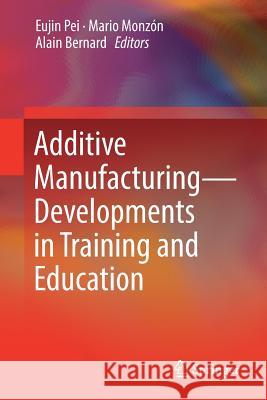Additive Manufacturing - Developments in Training and Education » książka
topmenu
Additive Manufacturing - Developments in Training and Education
ISBN-13: 9783319760834 / Angielski / Miękka / 2018 / 229 str.
Kategorie:
Kategorie BISAC:
Wydawca:
Springer
Język:
Angielski
ISBN-13:
9783319760834
Rok wydania:
2018
Wydanie:
2019
Ilość stron:
229
Waga:
0.36 kg
Wymiary:
23.39 x 15.6 x 1.35
Oprawa:
Miękka
Wolumenów:
01
Dodatkowe informacje:
Wydanie ilustrowane











